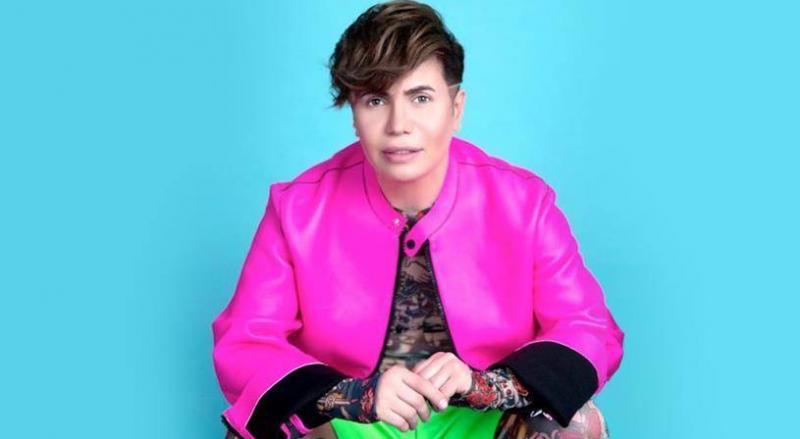The young artist Joe Raad was a guest on the program "Show Al Qissa," presented by the Lebanese media figure Rabea Al-Zayyat.
Joe Raad stated that he grew up in a modest family that raised him with noble morals and human values, describing his father as "generous" and his mother as "tender and gentle." He added that he had a difficult and bitter childhood, which began with the death of his father when he was seven years old, noting that the hardest moment during that period was witnessing the washing and shrouding of his late father.
He revealed that life became dark for him after his father's passing, as his mother was only 24 at the time. Her family refused to let her live alone at such a young age and insisted that she stay with them, while he and his siblings were distributed among relatives due to the large number of his mother's family, which the house could not accommodate.
Joe Raad broke down in tears on air while talking about the harsh moments he experienced while living with his uncle, mentioning that he overheard his uncle's wife express her dissatisfaction, saying "I want to teach my kids that they shouldn't associate with Joe," referring to the fact that Joe had not continued his education and had left school in the sixth grade.
He added that as his aunts aged, they decided to move him and his siblings to a foster home, describing it as the hardest moment for him, stating that when he said goodbye to his mother from the car, he felt as if his soul was leaving him.
Joe Raad admitted that during the time he was homeless and orphaned, he faced harassment, saying: "I experienced everything, and of course, I was subjected to harassment. In this day and age, even a child who is not poor can be harassed by his relatives, so how about a young boy on the street?"
He recalled an incident on a bus where an elderly man tried to tempt him with things, adding: "He offered to give me drugs and money and said he would take me to his house to sleep next to him," stressing that he refused out of fear, especially since he is firmly against drug use.
In response to the question "Some people still do not recognize Joe Raad as a singer," he revealed that he is not affected by such criticism, claiming to have ample admirers, citing the affection of artists, particularly Emirati artist Ahlam and Lebanese media personality Jamal Fayyad.
Regarding his profession as a hairdresser, he noted that he was paid three thousand dollars by Syrian artist Asala Nasri during his last visit, while he said that the most generous artist was Haifa Wehbe, who once paid him five thousand dollars along with a gift valued at around twelve thousand dollars. He also mentioned that Emirati artist Ahlam gave him a check for one hundred thousand dollars, adding that Majida El Roumi and Najwa Karam are among the most elegant people he deals with.
Speaking about Syrian artist Mayada El Hennawy, he said he has a good relationship with her and they visit each other, mentioning they planned to attend an event together, but circumstances did not allow it.
In response to the criticism he receives for practicing hairstyling alongside his music career, he said: "Most artists today have business interests alongside their art. Ragheb Alama has schools; Assi El Helani and Rami Ayash have large restaurants. I don't think this affects me as I balance both fields because I need to live."
Joe Raad expressed his opinion on homosexuality, stating that he respects everyone's inclinations, considering it a personal matter, and added: "If it doesn't harm anyone, I respect their orientation, whatever it may be."
Regarding his desire to marry, he said he would not mind if he found the right partner, explaining that he once got to know a girl of Palestinian origin living in Lebanon, and they reached the engagement stage, but fate did not allow them to continue.
Joe Raad concluded by saying: "When I remember my difficult life, I cry to myself. I didn't want to reveal everything that is in my heart and talk about the details of the suffering I went through because I want people to continue to be used to the joy and positivity I give them. That is why I kept some things private between me and myself."




